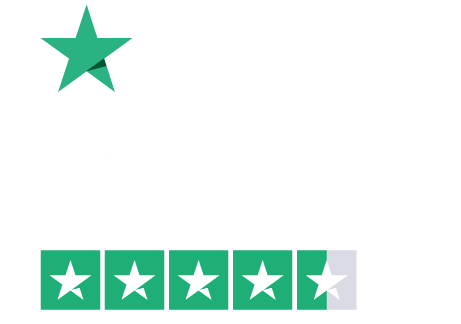The Smart Way to Start Switching Accountants in the UK

Right Guidance. Simple Steps. Confident Switching.
- Lanop is your trusted partner when changing company accountants. We show you the smart way to switch accountants.
Expert Handling

- We oversee the full procedure for changing accountants UK, from clearance letters to HMRC authorisation, giving you absolute clarity on how to change your accountant without disruption.
System Upgrade
- If needed, we advise on how to switch accounting software, manage setup, and optimise your new platform for growth.
Tailored Support
- Whether you’re moving from a small firm, planning to switch accounting firms, or navigating the changing role of accountants, we offer calm, personalised guidance at every step.

Our Seamless Switching Accountant Service
We handle the entire procedure for changing accountants, from requesting professional clearance to gathering your accounting records. This makes the process of changing accountants simple and stress free.
You don’t need to worry about what to do when changing accountants or how to inform them. We email your previous accountant directly and follow HMRC protocol for changing accountants UK and changing accountants HMRC.
Whether you're a sole trader or changing accountants limited company, we request all the documents needed for a smooth transition. This includes prior returns, bookkeeping files and anything required to switch accounting software or systems.
If you want to switch accounting platforms, we migrate your data to Xero or QuickBooks and set up your new system without disrupting your operations. It’s the best way to switch accounting systems without the usual downtime.
We make sure all legal requirements are met when changing tax accountants or changing company accountants. Your filings, deadlines and compliance status continue without interruption.
If you’re unsure about the pros and cons of changing accountants, we walk you through everything you need to know so you can make a confident move.
From collecting records to contacting your old firm, we take care of the entire changing accountants process. You simply sit back while we manage every step.
We provide a simple checklist outlining what to request when changing accountants, so you always know what’s happening behind the scenes.
Whether you're changing lanes accountants or exploring how to change your accountant, our process ensures a clean, organised move with no disruption to your business.
If your needs have outgrown your old firm and the changing role of accountants matters more than ever, we help you upgrade to the right level of strategic support.
Who We Help When You Switch Accountants
We support creators, freelancers and businesses across multiple industries, especially during the delicate process of changing accountants, ensuring your unique revenue models remain intact.
- YouTubers & TikTokers
- Instagram Influencers & Lifestyle Bloggers
- Twitch Streamers & Gamers
- Musicians, Actors & Voiceover Artists
- Podcasters, Writers & Freelancers
- Creative Consultants & Media Professionals


Understanding the Switching Accountants Process
Many business owners think twice before they Switch Accountants, not because they’re happy with the service they’re getting, but because the idea of changing feels complicated. It’s common to wonder what the procedure for changing accountants actually looks like, how HMRC updates work, or whether the change will cause disruption. These concerns often keep people stuck, even when the benefits of Switching Accountants are clear.
The truth is that the changing accountants process is straightforward when handled by the right team. In the UK, your new accountant manages the entire process of changing accountants, including contacting your existing accountant, requesting records, and updating HMRC. This is standard professional practice, which means there’s no awkwardness and nothing for you to chase. If you’re unsure about what to do when changing accountants, we guide you step by step so you never feel out of your depth.
At Lanop, we take time to explain the pros and cons of changing accountants, especially if you're a growing or established business. For some, the changing role of accountants means they now need better tax advice, clearer communication, or more strategic support. Others reach out because they’re unsure how to change your accountant or worried about compliance. Whatever the reason, we make sure the transition is smooth, compliant and aligned with HMRC rules for changing accountants HMRC and changing accountants UK.
If you're a company director, the process is just as simple. We manage the full handover for anyone changing accountants limited company or changing company accountants, ensuring all statutory filings, deadlines and systems continue without interruption. If you’re moving from another firm, we streamline everything for clients changing lanes accountants, switching tax accountants, or those exploring how to switch accounting firms.
We also help you review your systems. If you’re unsure how to switch accounting software, whether to migrate data, or what the best way to switch accounting systems is, our team handles the full setup. You’ll also get a clear list of what to request when changing accountants, so you always know what’s being collected and why.
If you're ready to improve your financial support and want clarity on how to change accountants, we're here to guide every step.
Common Challenges When Switching Accountants
- Worrying the switch will disrupt your accounts
- Not knowing how to inform your current accountant
- Concerns about HMRC compliance during the handover
- Records scattered between different systems or software
- Fear that the process will be complicated or time-consuming


Identify Missed Deductions & Fix Past Mistakes
One of the biggest advantages of moving to a new accountant is finally getting a clear look at where you stand. Many clients come to us after years of feeling unsure whether their accounts were done properly or whether they were missing out on tax reliefs they were entitled to. When you switch to Lanop, we start with a full review of your past returns, bookkeeping and VAT records to make sure nothing important has been overlooked.
This review is especially helpful for anyone changing tax accountants because it gives you clarity on how accurate your previous filings were. We look for missed expenses, duplicated entries, incorrect allowances, or areas where you may have overpaid. If we find issues, we explain them in simple language and advise whether corrections are needed. It’s all about giving you confidence that your finances are finally being handled the right way.
We also check whether your business structure and accounting setup still suit your current goals. Sometimes, clients discover they stayed with their previous accountant out of habit, even though their needs had grown. Whether you’re moving from a small practice or looking to switch accounting firms for a higher level of care, this review helps you understand what’s been done well and what needs attention.
As part of this process, we give you a clear list of what to request when changing accountants, so you know exactly what records and documents we’ll be reviewing. Once everything is in place, we tidy up your books, correct any errors, and make sure your new financial foundation is clean and accurate.
Switching accountants should leave you in a better position, not just with a new point of contact. Our priority is to help you recover missed savings, strengthen your compliance, and start your journey with us on the right foot. If you want clarity, accuracy and confidence moving forward, we’re here to help.
How It Works
- Share your old accountant’s name, email, and any relevant access details
- We notify them, request your records, and complete HMRC authorisation
- We handle the entire transition while you relax and enjoy a seamless switch accountants process.


Post-Switch Compliance Review & Systems Health Check
Switching accountants isn’t just about moving your records from one firm to another. Once the process of changing accountants is complete, the real value begins. At Lanop, we carry out a deep compliance review to make sure everything in your financial system is correct, up to date, and fully aligned with HMRC requirements. This is especially important if you’ve had concerns about missed deadlines, inaccurate filings, or gaps in communication with your previous accountant.
Our compliance review covers the essentials: VAT returns, PAYE submissions, CT600 filings, SA100 tax returns, Companies House deadlines, UTR authorisation checks, and any outstanding HMRC correspondence. We look for missing submissions, incorrect codes, duplicated entries, and historic mistakes that could affect future filings. If anything is overdue or inaccurate, we correct it and explain exactly what was found so you can move forward with confidence.
Alongside compliance, we also run a full software and systems health check. Many clients switch accountants to us using outdated tools, scattered spreadsheets, or half-configured bookkeeping systems. We assess how you currently keep records, whether your setup is slowing you down, and whether it’s time to switch accounting platforms. If so, we guide you on how to switch accounting software properly, migrate your data securely, and recommend the best way to switch accounting systems based on your business size and workload.
You’ll also receive a clear checklist of what to request when changing accountants, ensuring we have everything we need from your previous firm for a clean review. Once the handover is complete, we tidy your data, align your chart of accounts, clean up opening balances, and make sure your new system works smoothly from day one.
The goal is simple: a fresh, compliant, organised financial foundation, so your switch doesn’t just fix the past, but strengthens the future.
👉 Ready for a clean, compliant restart? Speak with our team today.
EXCELLENTTrustindex verifies that the original source of the review is Google. We're a small company in business for 23 years. We've been with Lanop for over a year now. From the outset they listened carefully to our somewhat complex bookkeeping needs (we sell products and services with different tax codes); they've provided a tailored solution that they execute with precision and in a timely manner. We hired them to provide combined bookkeeping, payroll and accountancy service, and they're a dream to work with on all aspects. They are careful and conscientious, and never last minute. Excellent measured responses when I ring up with questions - always so friendly, too. The price is very reasonable, not least given the high standard of service and the peace of mind we have. Top drawer.Posted onTrustindex verifies that the original source of the review is Google. I'm in the early stages of a startup and got in touch with Lanop, who looked to be very knowledgeable in my niche. I booked a 30-minute consultation with Muhammad, who was great and understood all the challenges i'd be facing and what direction i need to go. I was very impressed with his advice, and i came away with confidence and reassurance that this is someone i need to be working with as i scale up.Posted onTrustindex verifies that the original source of the review is Google. The Free 30 mins call was exactly what I needed to understand my situation better and the team was really helpful in providing advise and recommending next step. I look forward to working with them long termPosted onTrustindex verifies that the original source of the review is Google. It has been an absolute pleasure working with Lanop. Excellent!Posted onTrustindex verifies that the original source of the review is Google. I reached out to Zaib with some business and visa compliance related questions. Zaib was extremely kind and efficient in sharing his knowledge to my specific circumnstance and beyond helpful with helping us understand how to set up our business and ensure we were being tax efficient. Thanks, Zaib and team.Posted onTrustindex verifies that the original source of the review is Google. I was so lost in the woods with taxes and accounts, and on top of that, I had a limited company I was eager to get off my hands. Lanop was fabulous from start to finish and got everything taken care of. I went from being a bundle of nerves about anything financial to feeling totally at ease. I never thought I'd see the day! Everything occurred in a timely manner and I was always updated on everything that was going on, which was lovely. I was also quoted really fairly for everything as well! Above all else, Lanop gave me incredible peace of mind. If you work with them, you'll certainly be in good hands.Posted onTrustindex verifies that the original source of the review is Google. Had a great meeting with Mohammad. Cleared up all questions we had surrounding “Gift with Reservation of Benefits”. Very calm and clear communicator. Thank you.Posted onTrustindex verifies that the original source of the review is Google. Very happy to recommend Lanop accountants at 389 Upper Richmond Road. They were very communicative, helpful and efficient.Posted onTrustindex verifies that the original source of the review is Google. I am a new owner to a company and they have really helped in supporting me in the startup of my businessPosted onTrustindex verifies that the original source of the review is Google. Excellent service, timely delivery, and response are a few words that describe Lanop tax advisors at best. I had seamless communication with Florentina, and Sohaib. They both accommodated me well and it was a hassle free experience overall. Quick resolution too! Highly recommend their services.
Our Identity
Integrity, honesty, and dedication are the core values at Lanop Business & Tax Advisors. Since launching our first Putney office in 2010, we’ve grown into a fully digital, UK‑based accounting and tax advisory firm that blends expert compliance with forward‑looking guidance and business strategy.
Our team of specialized chartered tax advisors and accountants delivers a full spectrum of services including tax planning, bookkeeping, VAT, payroll, and virtual finance director support all designed to help you manage your business more efficiently and confidently.
We believe accounting is more than numbers it’s about empowering your journey through modern finance. That means applying strategic insight, breaking down complex financial processes, and acting as your trusted partner not just submitting filings.
Put simply, Lanop Business & Tax Advisors is more than an accounting firm we are your strategic ally, dedicated to guiding your financial success with integrity, precision,

FAQ
Accountants for Switch Accountants
What are the main signs it’s time to start Switching Accountants?
Hidden fees, slow replies, missed deadlines, and outdated advice are the biggest indicators. When the relationship starts hurting your finances or peace of mind, it’s a clear signal to begin changing accountants and finding a firm that offers proactive support.
How does the changing accountants process actually work?
It’s simple. Once you decide to Switch Accountants, we send the professional enquiry to your old firm, gather your records, and complete the full procedure for changing accountants on your behalf. You don’t need to chase anyone, we manage the switch end to end.
Do I need to inform HMRC before changing accountants?
No. When changing accountants HMRC doesn’t need to be told directly. We handle the HMRC Digital Handshake so the transition is official, fast, and trouble-free.
Can I switch accountants if I have a limited company?
Yes. Changing accountants for limited company works the same way. We manage payroll access, VAT, Companies House filings, software login transfers, and all compliance tasks to ensure nothing falls through the cracks.
What happens if my old accountant refuses to cooperate?
They can’t stop the switch. Even if communication has broken down, professional rules require them to respond when you’re changing company accountants. We contact them directly and collect all mandatory records, protecting you from delays.
Will I lose any financial history during the process of changing accountants?
No. The full process of changing accountants includes secure data transfer. We pull in accounts, tax returns, trial balances, and bookkeeping data so nothing is lost or interrupted.
What should I request when changing accountants?
Typically: previous tax returns, year-end accounts, trial balances, VAT records, payroll data, and software access. If you’re unsure what to request when changing accountants, we provide the full list and collect everything for you.
Can I switch accounting software at the same time?
Yes. Many clients take the opportunity to modernise systems. We guide you on how to switch accounting software, the best way to switch accounting systems, and migrate your data into Xero or QuickBooks with no gaps.
Is mid-year switching allowed even if deadlines are close?
Absolutely. The timing doesn’t matter. Changing accountants in UK can happen any time during the year. If deadlines are approaching, switching to a responsive firm actually reduces risk and ensures filings are handled properly.
What’s the pros and cons of changing accountants?
The cons are mostly misconceptions; fear of disruption or difficult communication with the old accountant. The pros are major: better advice, faster responses, improved compliance, stronger planning, and technology upgrades. For most clients, the benefits of Switching Accountants far outweigh the hesitation.
Here's some other accountancy services we offer...
Get in touch
Monday to Friday 9am – 6pm


























